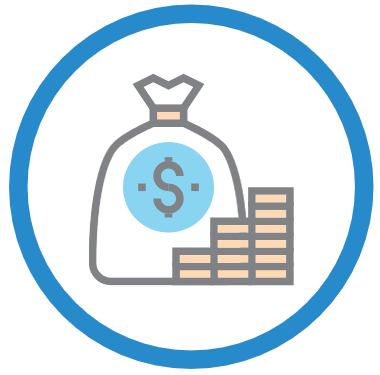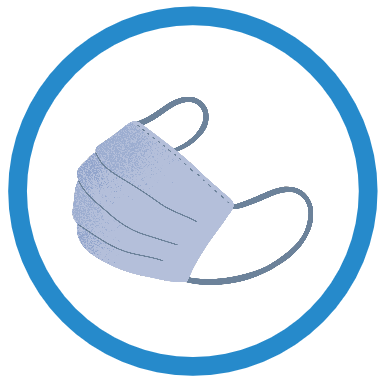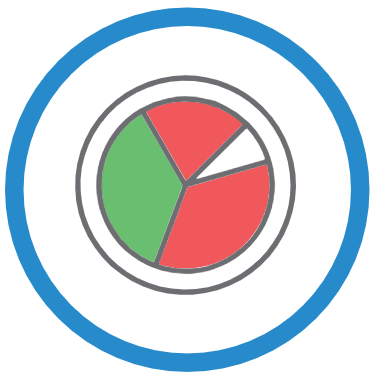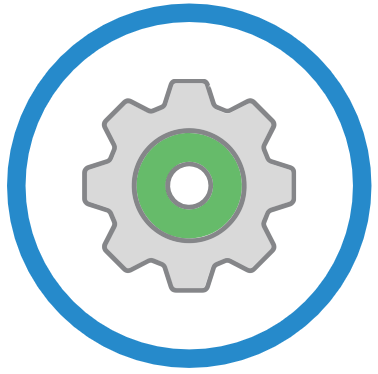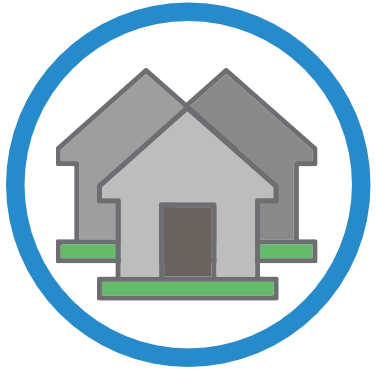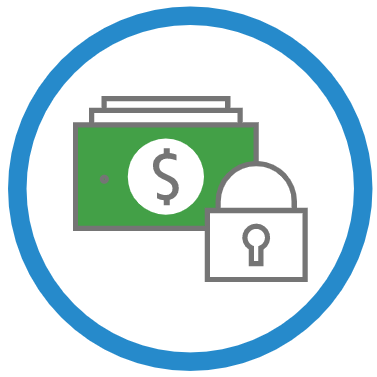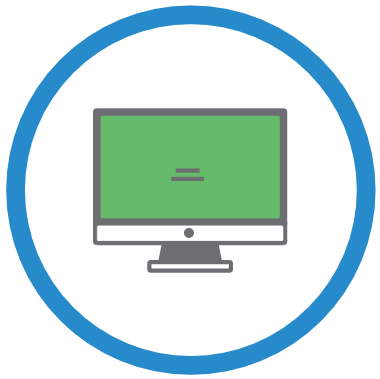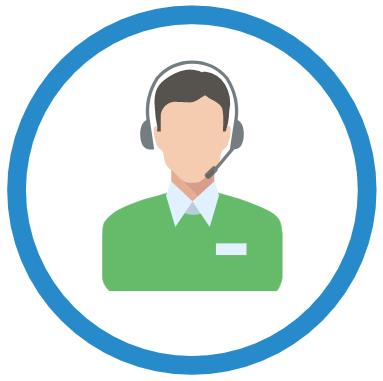HOA Accounting: What You Need to Know
Are you an HOA Board member looking to streamline your homeowners association bookkeeping process? Tasked with condominium financial management and looking for a solution to keeping track of all the accounts?
It can be stressful and confusing if you don’t have the right resources – luckily, Community Financials is on your side. Keep reading to find out everything you need to know about HOA and condominium accounting!

First Things First – What is an HOA and Why Does it Need Financial Management?
The HOA acronym stands for “homeowners association” – an organization that is responsible for creating rules and maintaining order in the community it represents. For multi-unit buildings the term is “condominium association” but its function is the same – the Board (comprised of volunteers) collecting dues from members that are to be spent on maintenance and for the greater good of the community.
Income-related tasks that have to be performed by the HOA Board member responsible include: sending out assessment bills & coupons (monthly, quarterly, semi-annually or annually), collecting funds, depositing funds, applying late fees, mailing late letters, handling owner payment calls and emails and working on delinquent accounts with collection specialists.
Sounds easy, right? Well, as you may have already discovered, there are many things that can go wrong – which makes for a logistical nightmare if not managed properly. Making things worse, the world is now in the second year of the Covid-19 pandemic, complicating HOA accounting and collections processes even further.
Resources for Managing HOA Accounting and Bookkeeping
Whether you are looking for help with your HOA or condo financial management, we have compiled a number of useful resources through the years that will simplify the processes and provide valuable advice. From essential reports and accounts payable best practices to webinars dealing with collections during a pandemic, Community Financials has got you covered.
Hot Tip: Over one third of condo communities and homeowner associations (HOAs) are self-managed. If you have 200 units/homes or less or a high level of board participation you are a prime candidate to self-manage with support.
HOA Accounts Payable
It is vital to ensure that your HOA or condominium board is following industry best practices where HOA accounts payable are concerned. Keeping track of all the expenses is hard work, and knowing what they are is often half the battle.
By moving your expenses from a binder to online software you gain the flexibility to review and approve bills before they are paid – it is recommended that two people approve every bill – and the entire board can have access to the system. Moving from manual invoice management to an online software will help with transparency, risk management and error reduction.
Current market software options are limited, each one requiring exponentially less work on the part of the HOA board:
Tier 1 – Spreadsheets
For a smaller community this can be all that is needed along with a willing volunteer to handle the accounting.
Tier 2 – QuickBooks
This software is cheap and helps with most of the basic accounting work that is required of a community. However it is not designed for HOA or Condos and does not offer online functionality for owners to make payments or see community documents.
Tier 3 – Industry Software
There are software programs designed specifically for the HOA and condo accounting and management industry. The top 3 software programs by market share are: 1) TOPS Software, 2) Caliber Software and 3) Village Management Software (VMS)
Tier 4 – Software with Service
This option offers the ultimate value, including time savings, consistency and expertise right at your fingertips.
HOA and Condo Community Financial Reporting
As a board member you have a fiduciary responsibility to exercise due care and diligence when overseeing the community and its funds. The following four condo / HOA financial reports are vital tools for protection of association assets, control and planning.
Aged Delinquency Report
The board needs to review this at every board meeting to see what action needs to be taken at certain late dates (30, 60 days), such as sending a demand letter or turning the account over to a collection attorney or agency.
Comparative Income & Expense Report
The Income Statement is meant to inform the Board how the association is doing compared to its budget. It shows the current period actual expense, budgeted expense and any variance between the two. It also shows the same thing for the year to date.
Balance Sheet
A balance sheet is an important part of the financial package. It tells where the association stands with their asset, liability and reserves at a particular point in time.
Bank Reconciliation Report
This report is used to “prove” that the cash assets shown on the association’s books and balance sheet agree with what the bank statement shows. It takes into account outstanding checks as well as deposits of cash that have not been processed by the bank.
Overcoming the Uncertainty of Covid-19
Since the start of the pandemic in early 2020, Community Financials has been proactively researching, consulting with experts and finding solutions for issues that Covid-19 has brought to the HOA and Condo association landscape.
A common concern that HOA Boards have expressed is the difficulty in collecting membership dues during such a tumultuous time in world history, moving your services to a remote platform as well as problems with cash flow if there is a significant hold-up in payments.
The collections process is challenging at the best of times, but now that the pandemic is raging on for a second year it has become near impossible to get the money your association needs to complete those repairs you have been planning. We have compiled a series of videos and webinars as well as other resources (articles, sample letters, etc.) to help your HOA or Condo community through this difficult time.
If your HOA or Condo association is experiencing difficulty with cash flow and is in need of money quickly, the recommended solution is to take out a line of credit to cover the expenses in the short term while you are waiting for the money owed to come in. The line of credit can help smooth the cash flow process, and take some pressure off the Board.
Tools and Solutions for HOA Board Members
HOA Banking Tools
A key part of financial transparency is access to banking information. We selected one of the few national banks that specializes in HOAs and Condo banking to work with.
The main benefits to using one of these specialty banks are: 1) they allow multiple board members as signors, 2) they provide online access to view bank accounts, and 3) they typically don’t charge a monthly fee.
Solutions to HOA Problems
Problems always have solutions. By overcoming the top 5 issues that self-managed communities encounter you can have a great experience that meets or exceeds that of communities that pay for full management at a fraction of the cost.
Why Not Just DIY?
The Benefits of Outsourcing HOA Accounting
If you find it too much of a struggle trying to manage your homeowners association’s finances on your own, it may be time to outsource those services. Nothing beats the convenience and expertise you have access to when you trust your HOA’s or condo’s bookkeeping/accounting to Community Financials.
By using a financial management service the association will save a substantial amount of money from what they were paying for traditional “full management” while still getting over 55% of the work done, which saves you, the HOA Board member, a huge amount of time.
More HOA Board Control
When the Board does all the financial management work by themselves, it gives an illusion of better control than having an outside company do the financial management – but it is just that – an illusion. Community Financials improves real control for a community Board. Our state of the art online systems provide transparency, increased control and enhance owner trust.
Some ways in which we help your HOA or Condo community Board maintain more control than self-management are:
Payments Go Directly to The Bank
Payments made online and mailed checks sent to a lockbox go directly into the community’s bank account, avoiding hold-ups and misplaced checks.
View Bank Accounts Online
Do all Board members currently have access to view your operating bank account? This transparency not only improves internal controls but also promotes trust among board members.
Two-Board-Member Bill Approval Before Payment
Our online bill approval system requires two Board members (with their unique login) to review all invoices and approve them prior to payment.
Two-Board-Member Approval for Reserve Account Transfers
For funds to be moved from the reserve account to an operating account (to pay for capital project invoices for example) Community Financials requires this request be in writing by 2 board members.
Timely and Accurate Financial Reports Provide Control
Timely financial reports are a tool to control association funds. The comparative income and expense report, for instance, shows a variance of actual costs vs budgeted costs and is great for spotting expense irregularities. (For more information see our Best 4 Financial Reports).
Direct Access to Accounting Software
As a Board member, do you currently get access to the software where your community data is stored? Do you have a library of prior financial statements you can view online? We offer the two market leading community management & accounting software used in the industry.
Administrative Mailings to Owners are Approved Prior to Sending
Besides the mailed statements and late letters, written correspondence to owners in the form of Annual meeting notices are reviewed and approved by a Board member prior to sending.
Easy Remote Financial Management
You may be skeptical of working with a company not located in your area. However, you already receive a lot of remote services from credit card companies, utility companies and banks.
Community Financials makes HOA or Condo remote financial management easy by providing the following services:
Accounting tasks: invoicing owners, collecting and depositing funds, answering payment questions, mailing late letters, working with collection agencies and attorneys on delinquent owners, paying bills, answering vendor questions and providing financial reports.
Administrative tasks: sending out violation letters, processing community mailings, handling lender questionnaires when an owner refinances and resale certificates when an owner sells.
These remote financial management and administrative services handle over 55% of the work of operating a community, so you can rest easy knowing that your HOA or Condo community is taken care of.
Better HOA Collections Practices
Ever feel like your association budget would be just fine if it didn’t have to deal with unit owners that didn’t pay on time? When some people don’t pay it can cause a lot of stress on your community’s budget. To help you we’ve put together this list of collections best practices for condo communities & HOAs.
One powerful way to reduce delinquencies is to impact one’s credit score. Click here to find out how reporting delinquent HOA and Condo owners to a credit agency works.
Community Financials offers our clients a simple and inexpensive way to avoid paying attorneys for delinquent fees and their costs which they may or may not recover for the association. Our Easy Collect Program puts the needs of the association front and center while working closely with the delinquent homeowner to collect the money they owe the association without further burdening the association or homeowner with unnecessary legal fees.
HOA Support Services + Ongoing Resources
Do you currently self-manage your condo community or homeowners’ association? Do you wish there was support to make the job easier? Hiring Condo & HOA self-management support services will reduce the time required to be a Board member.
You will provide a higher level of transparency and safety to your financial process, give unit owners access features they want like online payments and a portal with community documents they can access 24/7 and enjoy a more stress-free community life.
I’m Ready to Hand Off my HOA Accounting to Community Financials – Where Do I Start?
Well, it depends on whether your Board is currently self-managing or if you are already using a company or software that you are not satisfied with. Or maybe you have been in a vicious cycle of going from self-management to full management and back again – in which case the solution for you is a service that is in between the two!
The key is to ensure that your HOA or condo association is receiving the most efficient features and services for its needs. When you have the most effective systems in place, the financial management service for your HOA or condo ends up paying for itself.
Starting Your HOA Bookkeeping Journey
Whatever your current HOA or Condo Accounting or Bookkeeping situation, we are happy to provide a quote or meet with you online for a quick consultation to determine the best bookkeeping strategy for your HOA or condo association going forward.
How to Transition from Current Accounting
What to Expect Next
The first place to start your HOA accounting transition process is for your Board to have reviewed our proposal and our service agreement, had your questions answered and decided to work with us.
Next, the timing for notification depends on your current management agreement – has it expired, is it ending at the end of the month? Is it mid-term and you have to give 60-day notice? If it is mid-term, you’ll want to look at the termination paragraph of the contract.
We will start setting up your community in our software after we receive a signed agreement and our on-boarding checklist with your answers to questions like your tax ID, fiscal year end, etc.
We will want to get reports like a homeowner list with offsite addresses and emails, assessment amounts per owner as well as a vendor list from your outgoing company’s system in excel format. This will make on-boarding faster.
Next up we’ll mail out a letter to all your vendors to change their billing address so invoices come to us. Then we will mail out a welcome letter to owners with payment options, our contact info and how owners can set up online access.
“Breaking Up” With Your Current Provider
Get out your current service agreement and scan down until you get to the termination paragraph. Typically this paragraph states that the agreement can be broken a) for any reason with 60-90 day written notice or b) immediately if “cause” such as negligence.
For your convenience we have drafted up a termination notice for your current Community Manager that you can edit and use – this document can be found here.
